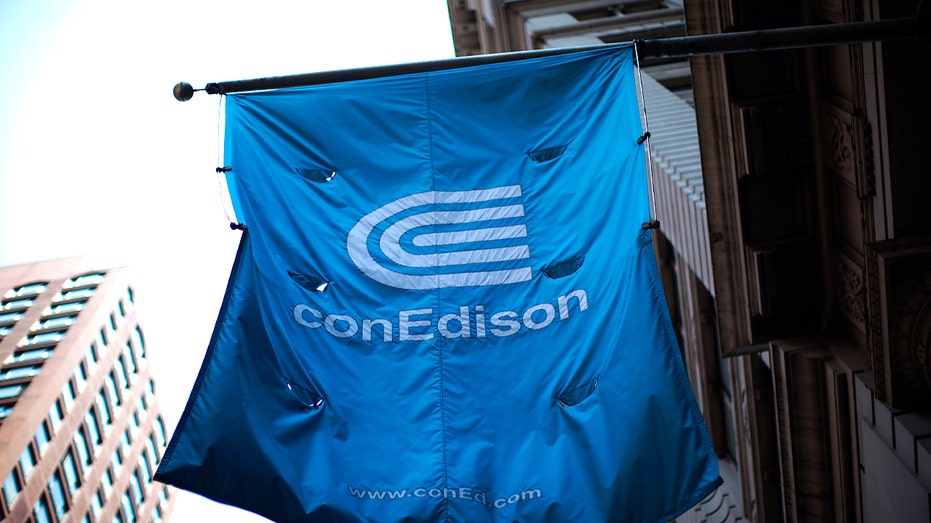ConEd customers monitoring bills after spike
February's bills came as a shock to customers already reeling from the previous bill
FOX Business Flash top headlines for March 25
Here are your FOX Business Flash top headlines for March 25.
New Yorkers are continuing to monitor their Consolidated Edison Inc. bills as inflation sits at its highest mark in 40 years.
Some, already reeling from January's spike in energy costs, aired their frustrations on social media.
However, ConEd argued that its hedging programs – which is a buying technique to smooth out market volatility – led to a significant drop in some February bills depending upon when a customer's billing cycle ends.
CLICK HERE TO READ MORE ON FOX BUSINESS
ConEd provides energy for roughly 10 million people who live in New York City and Westchester County. The company has about 3.5 million electric customers and 1.1 million natural gas customers.
Customers claimed on Twitter that their bills increased by a few hundred dollars again. Others lambasted the company saying the surging bills were "criminal" and "highway robbery."
"I am sick of Con Ed. Remember when all of our bill was double in Feb? I just paid that bill and I am sick," one user tweeted this month.
CON EDISON BILLS SURGE IN JANUARY, PROMPTING OUTCRY FROM NEW YORKERS
When the bills first began to spike, ConEd spokesman Allan Drury told FOX Business that the increase was due to an uptick in the supply cost of the energy commodity, not the cost for ConEd's services, otherwise known as "transmission and distribution charges."

"Natural gas is a driver of electricity costs as it is used by generation plants to create electricity. Con Edison does not make a profit on the commodity," Drury said in a statement. "We buy the energy on the wholesale market and provide it to customers at the same price we paid."
NYMEX natural gas futures have jumped over 30% from 12 months ago.
GET FOX BUSINESS ON THE GO BY CLICKING HERE
The outcry prompted New York Gov. Kathy Hochul to take action. In February, Hochul urged ConEd to review its billing practices and to better communicate with New Yorkers about the continuing surge in energy supply prices and the impact it will continue to have on utility bills.
"This winter the cost of natural gas, which is used to heat homes and generate electricity, has risen sharply resulting in a significant increase – sometimes more than doubling – of the supply component of customer electric and/or natural gas bills as compared to prior months," Hochul's office explained in a February news release.
However, these "extreme utility bill increases" are coming "at a time when New Yorkers are already struggling financially following the COVID-19 pandemic," Hochul said in a statement. "I am calling on Con Ed to review their billing practices because we must take unified action to provide relief for New Yorkers, especially our most vulnerable residents."
Drury told FOX Business on Friday that the company continuously reviews "our hedging programs and make adjustments as market conditions and the costs of hedging instruments change."
He noted that February "bills dropped significantly once the full value of our hedging programs was reflected in bills."
However, this hedging only benefited customers whose billing cycle included service on or after Feb. 11, according to ConEd. If a customer's billing cycle ended on Feb. 8, they would not have gotten the benefit of the hedging. Instead, that customer will feel the benefit in March, the utility company said.
With the high supply prices that customers experienced in January and early February, Drury said that ConEd "proposed adjusting our billing process to more closely align the impact of electric supply price volatility on bills with the results of our hedging."
According to Drury, "the adjustment will reduce the impact of supply cost volatility on customer bills."
"We appreciate our customers’ patience and reiterate that any customer who is struggling with bills should contact us about a payment extension, payment plan or other options that we offer," he continued.
Drury outlined the electricity costs in December, January and February for a home that uses 300 kilowatt-hours (kWh).
December
- Supply cost (the cost of the electricity itself): $22.81
- The cost to deliver the energy: $59.99
January
- Supply cost: $60.79
- Delivery cost: $62.86
February (The numbers below assume the customer’s billing cycle ended on Feb. 28.)
- Supply cost: $15.41
- Delivery cost: $64.28
Editor's Note: A prior version of this story incorrectly listed bill amounts for January and February. The headline has also been changed from "ConEd customers burned by February bills."





















